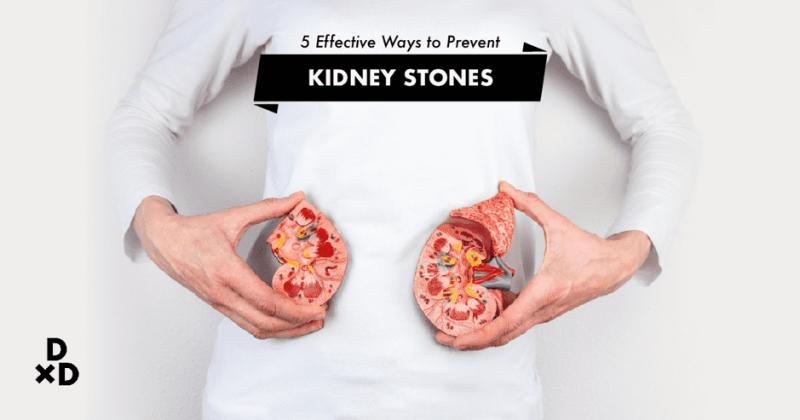How can we eliminate kidney stones from the bladder?
Kidney stones that have moved into the bladder can sometimes be eliminated naturally or with medical intervention. Here are some prevention and treatment options for eliminating kidney stones from the bladder:
1. Drinking Plenty of Water:
- Staying well-hydrated is crucial for preventing and sometimes flushing out smaller kidney stones. Aim to drink at least 8-10 glasses (about 2-2.5 liters) of water per day.
- Adequate hydration can help dilute urine and reduce the concentration of minerals that form stones.
2. Medications:
- Your healthcare provider may prescribe medications to help eliminate smaller stones or to manage symptoms. Common medications include alpha-blockers, which relax the ureter muscles, and pain relievers for discomfort.
3. Natural Passage:
- Small kidney stones (typically less than 4 mm) can often pass through the urinary tract naturally. Pain management and increased fluid intake can help facilitate this process.
- Monitoring the stone's progress with regular imaging (such as an X-ray or ultrasound) is essential to ensure it is moving out of the bladder.
4. Ureteroscopy:
- If a stone is lodged in the ureter or bladder and cannot pass naturally, a urologist may perform a procedure called ureteroscopy. This involves inserting a thin tube with a camera (ureteroscope) through the urethra to locate and remove or break up the stone.
- Stones can be fragmented with a laser or captured with a basket-like device and removed.
5. Extracorporeal Shock Wave Lithotripsy (ESWL):
- ESWL is a non-invasive procedure in which shock waves are directed at the kidney stone from outside the body. This can break the stone into smaller pieces that can then be passed more easily through the urinary tract.
6. Surgery:
- In some cases, particularly for large or complicated stones, surgical intervention may be necessary. Common procedures include percutaneous nephrolithotomy (PNL) or open surgery.
- PNL involves making a small incision in the back and removing the stone through a nephroscope, while open surgery is more invasive and may be required for very large or complex stones.
7. Preventive Measures:
- Once the stone has been eliminated, it's crucial to take steps to prevent future stone formation. Your doctor may recommend dietary and lifestyle changes, which can include:
- Reducing sodium intake
- Monitoring calcium intake
- Adjusting dietary oxalate levels
- Increasing fluid intake
- Avoiding excessive consumption of animal proteins
- Medications that can help prevent stone formation in some cases
It's important to consult with a healthcare provider if you suspect you have kidney stones or are experiencing symptoms such as severe pain, blood in the urine, or frequent urinary tract infections. They can diagnose the stone's size and location and recommend the most appropriate treatment based on your individual circumstances. Kidney stone management and prevention are essential to minimize the risk of recurrence.
How can kidney stones be eliminated from the bladder?
Kidney stones that have passed from the kidneys into the bladder can be eliminated in several ways, depending on their size and location.
Small stones (less than 4 millimeters): These stones can often pass on their own with plenty of fluids and pain medication.
Larger stones (4-6 millimeters): These stones may require medical intervention, such as ureteroscopy or extracorporeal shock wave lithotripsy (ESWL).
Very large stones (greater than 6 millimeters): These stones may require surgery to remove them.
What medical procedures or treatments are available to remove bladder stones?
There are several medical procedures or treatments available to remove bladder stones:
Ureteroscopy: Ureteroscopy is a minimally invasive procedure that involves inserting a thin tube with a camera (ureteroscope) into the urethra and bladder. The surgeon then uses a laser or other tool to break up the stone and remove the fragments.
Extracorporeal shock wave lithotripsy (ESWL): ESWL is a non-invasive procedure that uses sound waves to break up the stone into smaller fragments that can then pass on their own.
Surgery: Surgery is typically only used for very large stones that cannot be removed with other methods. Surgery may involve a cystotomy, which is an incision into the bladder, or a percutaneous nephrolithotomy, which is a procedure that involves making a small incision in the back and using a laser or other tool to remove the stone.
Are there home remedies or preventive measures to avoid bladder stone formation?
There are several home remedies or preventive measures that may help to avoid bladder stone formation:
Drink plenty of fluids: Drinking plenty of fluids can help to dilute the urine and prevent stones from forming. Aim to drink eight glasses of water per day.
Eat a healthy diet: A healthy diet can help to reduce the risk of kidney stones by providing the body with the nutrients it needs to produce urine that is less likely to form stones. Focus on eating fruits, vegetables, and whole grains.
Limit salt intake: Excess salt can increase the risk of kidney stones. Limit your salt intake to less than 2,300 milligrams per day.
Limit animal protein intake: Animal protein can increase the risk of kidney stones. Limit your intake of red meat, poultry, and fish.
Eat more calcium-rich foods: Calcium can bind to oxalate, a substance that can contribute to kidney stone formation. Eat more calcium-rich foods, such as dairy products, leafy green vegetables, and fortified cereals.
Take supplements: If you are at risk of developing kidney stones, talk to your doctor about taking supplements, such as potassium citrate or magnesium citrate, which may help to prevent stones from forming.
What are the symptoms and signs of bladder stones that indicate the need for treatment?
The symptoms of bladder stones can vary depending on the size and location of the stone. Some common symptoms include:
Painful urination: Bladder stones can cause pain or burning during urination.
Frequent urination: You may need to urinate more often than usual, even if you are not producing much urine.
Blood in the urine: Blood in the urine is a sign that a stone may be irritating or damaging the bladder lining.
Cloudy or smelly urine: Cloudy or smelly urine can be a sign of a urinary tract infection, which can also be caused by bladder stones.
Nausea and vomiting: Nausea and vomiting can be caused by severe pain from bladder stones.
Fever: Fever can be a sign of a urinary tract infection, which can also be caused by bladder stones.
If you are experiencing any of these symptoms, it is important to see a doctor right away. Early diagnosis and treatment of bladder stones can help to prevent complications.
How can individuals take proactive steps to maintain bladder health?
In addition to the home remedies and preventive measures listed above, there are several other things you can do to maintain bladder health:
Don't hold your urine: Holding your urine can increase the risk of bladder stones and urinary tract infections.
Urge to urinate: Don't ignore the urge to urinate. When you need to go, go right away.
Wipe from front to back: This can help to prevent bacteria from entering the urethra and causing a urinary tract infection.
Drink cranberry juice: Cranberry juice may help to prevent urinary tract












